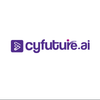Enterprise leaders encounter a critical data challenge. Internal databases and systems provide valuable operational insights, but they create significant blind spots when it comes to market intelligence. External web data contains essential information about competitor strategies, pricing trends, and consumer behavior patterns that internal systems simply cannot capture.
However, when enterprise leaders use conventional tools and methods for extracting external web data, they encounter significant obstacles. Traditional extraction tools are proven to be ineffective in processing large volumes of unstructured information from diverse sources. Manual data acquisition processes remain time-intensive and prone to errors. Schema inconsistencies across different websites create additional complications for data integration.
That's why enterprises should consider leveraging automated web scraping services. These service providers use headless browser technology to address the extraction challenges while enabling responsible data collection practices.
Web Scraping Using Headless Browsers: How It Automates Data Extraction
Web scraping automates the extraction of large amounts of information from websites. Standard scraping methods face major obstacles. Complex JavaScript-rendered content, CAPTCHA, and dynamic page elements challenge conventional tools.
Headless browsers solve these problems effectively. These tools work just like regular browsers but without a visual interface. They run quietly in the background and load web pages completely. They handle JavaScript execution, cookie management, and session maintenance automatically.
Regular HTTP requests fall short, but headless browsers excel at:
- Processing JavaScript-heavy websites
- Managing authentication processes
- Interacting with web elements via clicks and forms
- Running custom scripts in page contexts
- Taking screenshots of rendered pages
Professional web scraping services providers make use of advanced headless browser tools. These tools help enterprise leaders overcome the limitations of conventional extraction methods. On top of that, they are a great way to get access to protected content because developers can create scripts that mirror human behavior.
Companies looking for reliable web data scraping services benefit from headless browser automation's powerful features. The global volume of data created and stored within websites is estimated to reach around 181 zettabytes by 2026. Many web scraping services that USA companies build expandable solutions with these technologies. They can pull data from complex websites and turn raw external information into practical business insights.
How Headless Browsers Support Strategic Scraping and Intelligence Operations
The key advantage of headless browsers lies in their ability to interact with dynamic web content. These tools can simulate user actions such as clicking buttons, filling forms, and scrolling through pages. This capability enables businesses to extract data from interactive websites and authentication-protected resources.
- Complete Data Capture and Processing
Traditional extraction tools often miss critical information when websites rely on JavaScript to render content. Headless browsers solve this problem by executing all page scripts and capturing the fully rendered results. This ensures enterprises receive complete, authentic data rather than partial snapshots.
For example, e-commerce sites frequently load product prices and availability information through JavaScript. Headless browsers capture this dynamic content accurately, providing businesses with reliable competitive pricing data.
- Automated Continuous Monitoring
Enterprise leaders benefit from establishing ongoing data collection processes across multiple sources. Headless browsers can be programmed to:
- Scan competitor product catalogs daily for pricing changes.
- Monitor news websites for industry developments.
- Track social media platforms for brand mentions and sentiment.
- Extract financial data from multiple market sources.
This automated approach eliminates manual monitoring tasks and provides consistent data streams for business analysis.
- Enabling Complex Interaction-Based Scraping
Many modern websites need specific user actions to show valuable data. Headless browsers simulate clicks, fill forms, scroll pages, and copy human behavior to access hidden information. This feature becomes valuable when gathering data from password-protected resources and interactive dashboards.
- Multi-Source Intelligence Integration
Business decisions require insights from diverse sources. Headless browsers enable the integration of data streams from multiple websites, creating unified intelligence dashboards. This approach allows organizations to spot patterns and correlations across different market segments.
A retail business leader might combine competitor pricing data, industry trend reports, and consumer sentiment analysis to optimize their product strategy. Web data scraping service providers help enterprises build these multi-source intelligence systems.
- Real-Time Competitive Analysis
Market ecosystems evolve rapidly, necessitating instant access to competitive intelligence. By leveraging headless browsers for data scraping automation, business leaders can experience real-time data collection from competitor websites, enabling them to respond to market variations.
The web scraping services USA firms utilize headless browser tools to deliver rapid insights on competitor product launches, pricing modifications, and advertising campaigns. This level of intelligence gives enterprise stakeholders the agility required to maintain a market edge.
Professional Web Scraping Services: The Foundation for Responsible Data Extraction
Professional web scraping service providers have ethical responsibilities that come with their powerful headless browser scraping capabilities. Their expertise extends beyond technical implementation. They ensure that the data extraction process honors legal boundaries and website owners' interests.
- Implementing Rate Limiting and Throttling
Experienced web data scraping services use strategic request pacing through rate limiting and request throttling. These providers carefully control request frequency instead of bombarding target servers with rapid-fire requests. This approach mirrors natural user behavior and prevents server strain while maintaining good digital citizenship.
- Avoiding Data Over-Collection
Data extraction should focus on relevance rather than volume. Web scraping services USA firms collect only the work to be done and stay away from personal information unless authorized. This targeted strategy reduces storage needs and addresses ethical concerns linked to excessive data collection.
- Resilient Anonymity and Privacy Protection
Service providers' strict data handling protocols protect both scrapers and data subjects. Data encryption acts as the foundation of their secure extraction and storage procedures. Experts ensure that the headless browsers filter out personally identifiable information during the extraction process, maintaining compliance with privacy regulations across various jurisdictions.
- Using Proxies Responsibly
Proxy management stands as the most critical part of ethical web scraping. Professional providers use diverse proxy pools and rotate IP addresses naturally. This prevents identification patterns by distributing requests through multiple pathways. They also favor residential proxies that create legitimate-looking traffic patterns over detectable data center IPs.
Final Words
Headless browsers have revolutionized how organizations extract and use external data. These powerful tools help companies overcome traditional extraction methods' limitations and deliver authentic, detailed datasets. Headless browser technology connects complex web environments to business intelligence needs. This allows companies to stay aware of market changes.
Professional web scraping service providers play a vital role in responsible data extraction. Their expertise includes proper rate limiting, targeted collection, and privacy protection protocols. These specialists know how to balance technical capabilities with reliable data extraction practices.






Top comments (0)